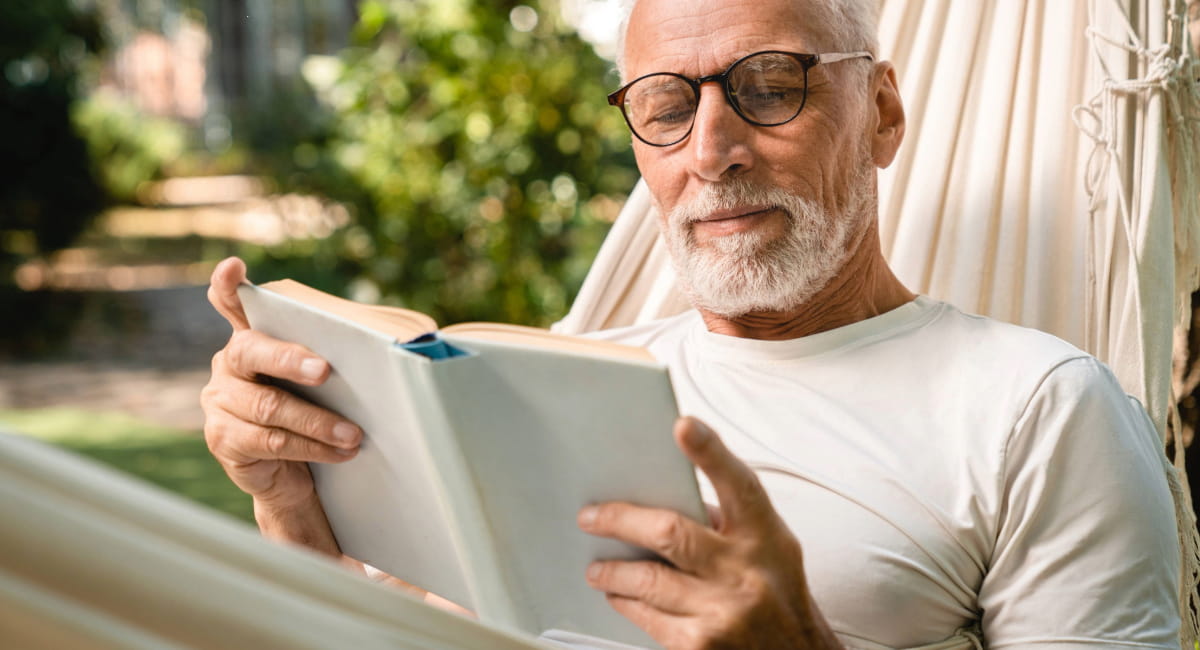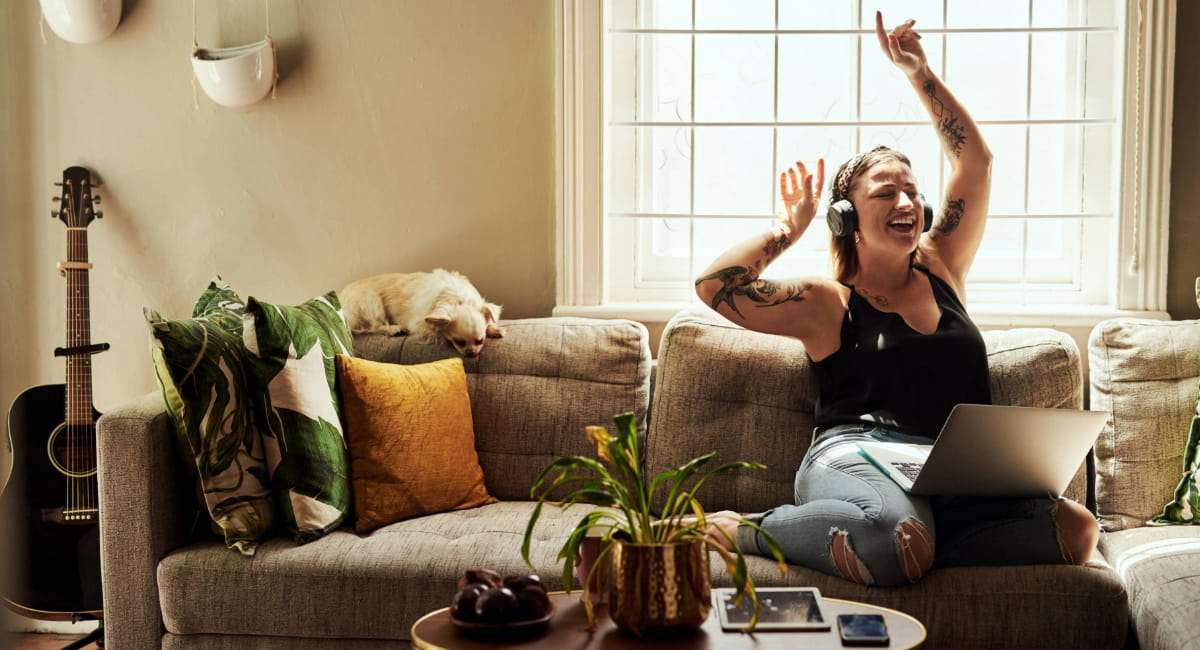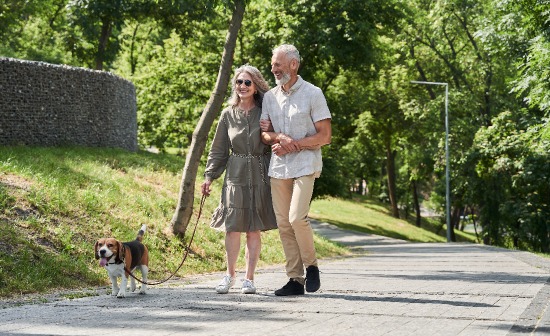“Small self-care is a big win every day.”—Emelyn Thomas, Mental Health Counsellor, Australian Unity
Key points
- Practising small self-care habits regularly helps reduce stress and burnout.
- Mindfulness techniques like breathing, grounding and engaging your senses can calm your nervous system and build emotional resilience.
- You don’t need hours—just moments. Even one deep breath, a short walk or a moment of connection can help.
Between work, caregiving, relationships and endless digital distractions, many of us feel stretched. And when life gets busy, it’s easy to keep pushing until you’re running on empty.
But mental health experts say one of the most important things you can do for your Real Wellbeing is to regularly stop, breathe and check in with yourself.
“We tend to be so preoccupied with helping others and doing tasks that we forget about ourselves,” says Emelyn Thomas, a mental health counsellor with Australian Unity. “But when we ignore our own needs for too long, it catches up with us—physically, emotionally, mentally.”
So how do we build those habits in a world that’s always asking more from us? And how can mindfulness and self-care help us find greater balance?

What exactly are self-care and mindfulness?
Self-care and mindfulness are related, but not the same, says Rachel Clements, Director of Psychological Services at the Centre for Corporate Health and a member of the R U OK? Conversation Think Tank since 2014.
Mindfulness is a form of self-care—a technique that helps anchor you in the present moment. It involves becoming fully aware of what’s happening here and now, and you can practice it through things like meditation, breathwork, journalling or by simply tuning into your surroundings.
“Mindfulness is a reset for the nervous system,” says Rachel. “It brings us back into our bodies, instead of living in a reactive, anxious state.”
Self-care, on the other hand, refers to the everyday actions that support your physical, emotional and psychological health. That might mean sleep, movement, nutritious food or simply giving yourself permission to rest.
Social connection is also a form of mental self-care, as are setting boundaries and prioritising alone time. It all depends on what you need in the moment.
“Self-care looks different for everyone at different times,” says Rachel. “Because that’s the thing: it’s about giving to yourself and nurturing yourself.”
Together, self-care and mindfulness form a protective buffer against stress, burnout and anxiety.
Why it matters: the science behind self-care and mindfulness
From a neuropsychology perspective, self-care and mindfulness have a measurable impact on the brain, explains Rachel.
“They help shut down our jumpy amygdala—the fear and alarm centre in our brain that goes into overdrive when we’re stressed, and floods our system with cortisol and adrenaline,” she says.
“They also activate the parasympathetic nervous system—our natural ‘rest and digest’ mode. When we’re in a state of emotional reactivity, that system doesn’t switch on naturally, so we can end up stuck in our emotional brain for weeks—constantly reacting and in a state of high distress.”
Over time, research shows that the benefits of mindfulness and self-care can reduce symptoms of anxiety and depression, improve sleep, and help regulate emotions.

The importance of self-care
Self-care doesn’t have to mean candle-lit baths or yoga retreats. In fact, for many of Emelyn’s clients, it’s pretty basic—taking a few deep breaths, stepping outside for a few minutes, or drinking a glass of water.
“Self-care is anything that sustains your wellbeing,” she says. “Sometimes that’s rest, but sometimes it’s going for a walk, calling a friend or ticking something off your to-do list.”
Rachel agrees that there is no need to overthink it, adding that movement and meaningful connection are two of the most powerful self-care tools we have.
“Even a brief chat with a neighbour or someone at the dog park can trigger the release of oxytocin—a feel-good hormone that lifts your mood and helps you manage stress,” she says.
“And exercise is a no-brainer. Just 15 minutes of physical activity, a few times a week, has been shown to be more powerful than antidepressants for mild to moderate depression.”
Other examples of simple physical self-care practices include:
- going for a short walk
- saying “no” to a non-essential commitment
- eating a nourishing meal
- spending time with a pet
- repeating positive affirmations
- calling someone who lifts you up.
“Small self-care is a big win every day,” says Emelyn. “It really can help to reduce stress before it builds up. But it’s about checking in with yourself, noticing how you feel, and having a variety of grounding techniques to draw from—because self-care should be dynamic, flexible and constant.”
Mindfulness for mental health
Meditation is a popular mindfulness practice, but it’s not the only one. At its core, mindfulness means being present—paying attention to your body, your mind and your environment.
“It could mean listening to a piece of music and focusing on the piano part, then noticing how your body responds,” says Emelyn. “Or maybe it’s watching the sky, noticing the colours of cars around you, or feeling the warmth of the sun.”
Rachel explains that a simple mindfulness technique for grounding yourself is to engage one of your five senses:
- Sight: Look at a tree, the sky, or a photo of someone you love. “Getting out in nature, or even just looking at a view of nature has been shown to have powerful effects,” says Rachel.
- Sound: Listen to music, birds or a podcast.
- Touch: Hug someone, hold a warm cup of tea or pat your dog. “We release huge amounts of serotonin when we pat our pets,” says Rachel.
- Taste: Savour something delicious. Notice the flavour and texture.
- Smell: Breathe in the scent of rain, coffee, a flower or essential oils.
“Connecting with the five senses is a fast track to positive emotion,” says Rachel. “It helps reset the brain—sometimes in seconds.”
But she adds that we have to be intentional about it, because a thing called “negativity bias” means it doesn’t naturally come to us. “Unfortunately, our brains are wired to pay more attention to negative emotions,” she explains.
Other mindfulness tools to explore:
- Guided meditation apps like Calm, Smiling Mind, or Headspace.
- Gratitude journalling.
- Body scans or progressive muscle relaxation.
- Breathwork, like box breathing: inhale for four, hold for four, exhale for four, hold for four. Repeat for 2–3 minutes.
As with self-care, the key is to experiment, so that you ultimately build up a toolkit of techniques that can help you in different situations. “Not every technique works for everyone,” says Emelyn. “It’s about trying different things to find the ones that feel grounding and sustainable for you.”

How to practise mindfulness and self-care when you’re already overwhelmed
If you’re in survival mode, even the idea of practising mindfulness or self-care can feel like another task on your to-do list. That’s why Emelyn suggests starting gently.
“Ask yourself, ‘What’s one thing I can do today that will help me feel a little more grounded?’” she says. “Maybe that’s taking a few deep breaths or going outside. The goal isn’t to be perfect—it’s to show up for yourself with kindness.”
This might mean:
- Choosing one self-care habit and repeating it daily.
- Setting a reminder to pause and breathe at lunchtime.
- Making a “self-care menu” of activities you enjoy, so you have something to fall back on when stressed.
“Self-care isn’t selfish—it’s smart” insists Emelyn. “If you care for yourself first, you’ll have more to give to others.”
If you’re looking for structured support and are an Australian Unity private health customer, you may be eligible to access Australian Unity’s Mindstep program. A personalised, clinically backed mental health coaching via phone or app. It’s designed to help people navigate stress, low mood and anxiety with confidence.
With practice, it gets easier and more automatic
Ultimately, both experts agree that self-care and mindfulness are about being proactive, not reactive.
Think of it like brushing your teeth—you don’t wait for a cavity to start. You do it daily to protect yourself. The same goes for your mental health: small acts of care, done regularly, can build real resilience.
“It’s like building a muscle,” says Emelyn. “At first, you have to remind yourself to take a break, breathe, reflect. But with practice, your brain starts to go there automatically.”


